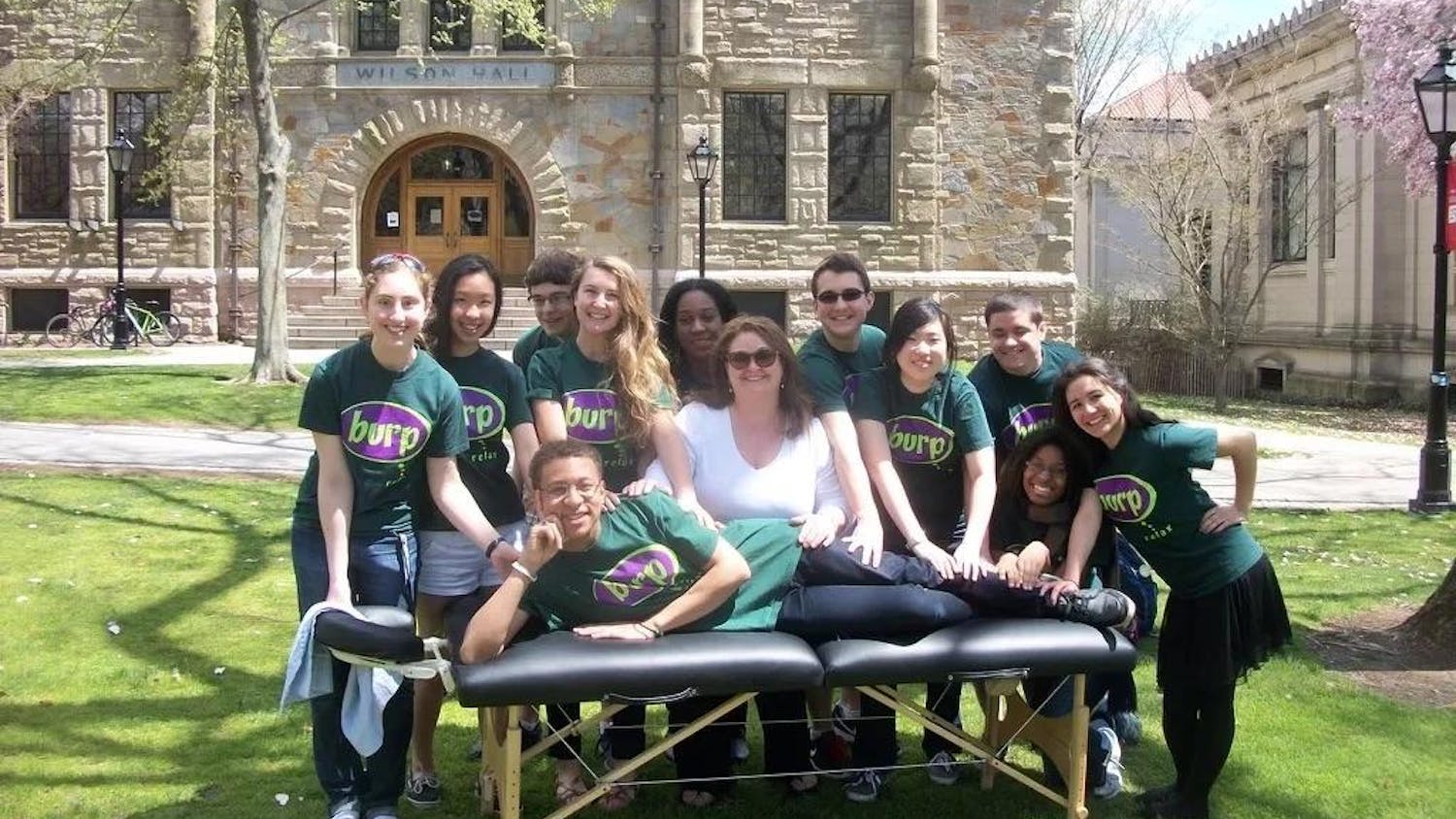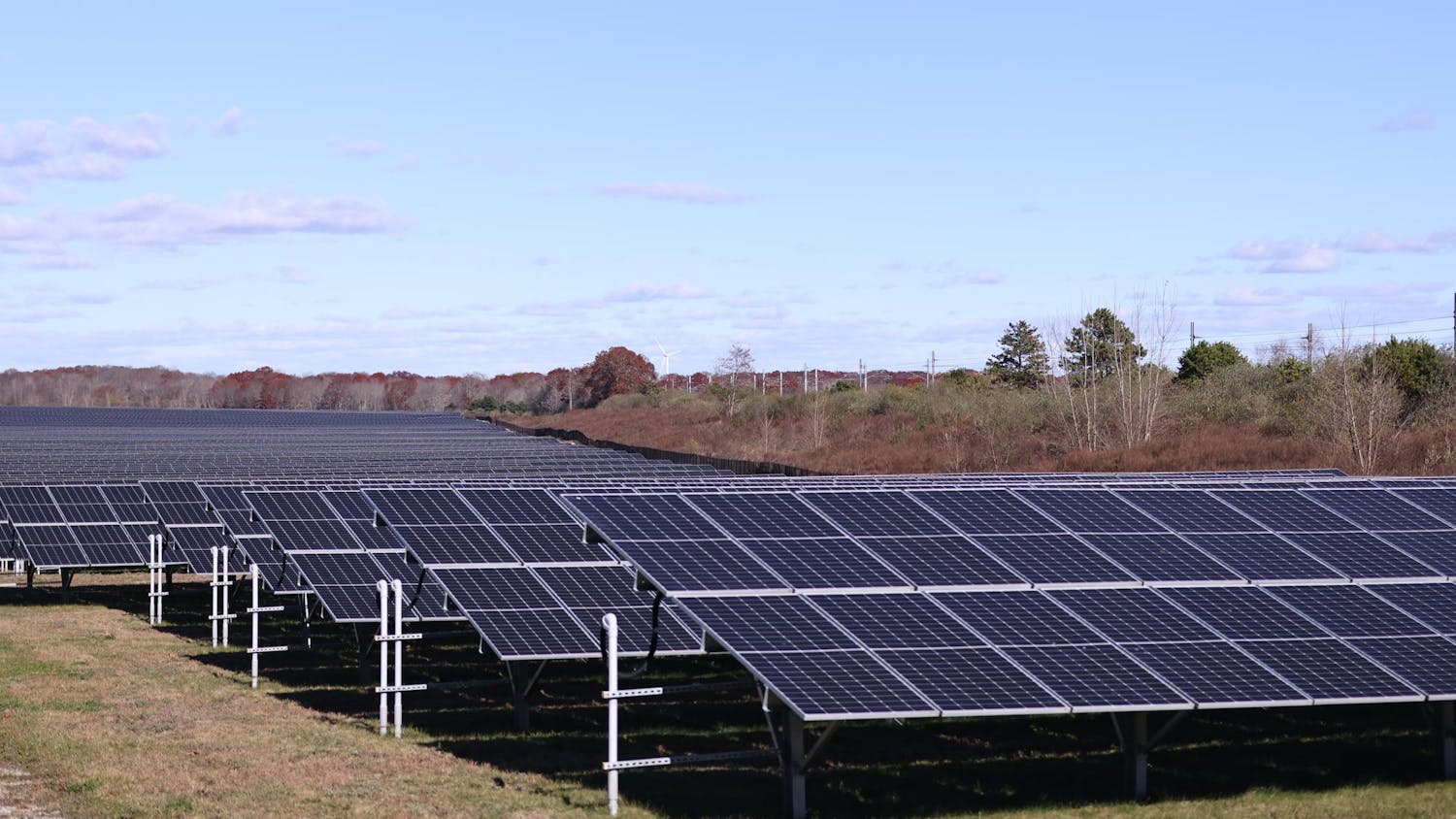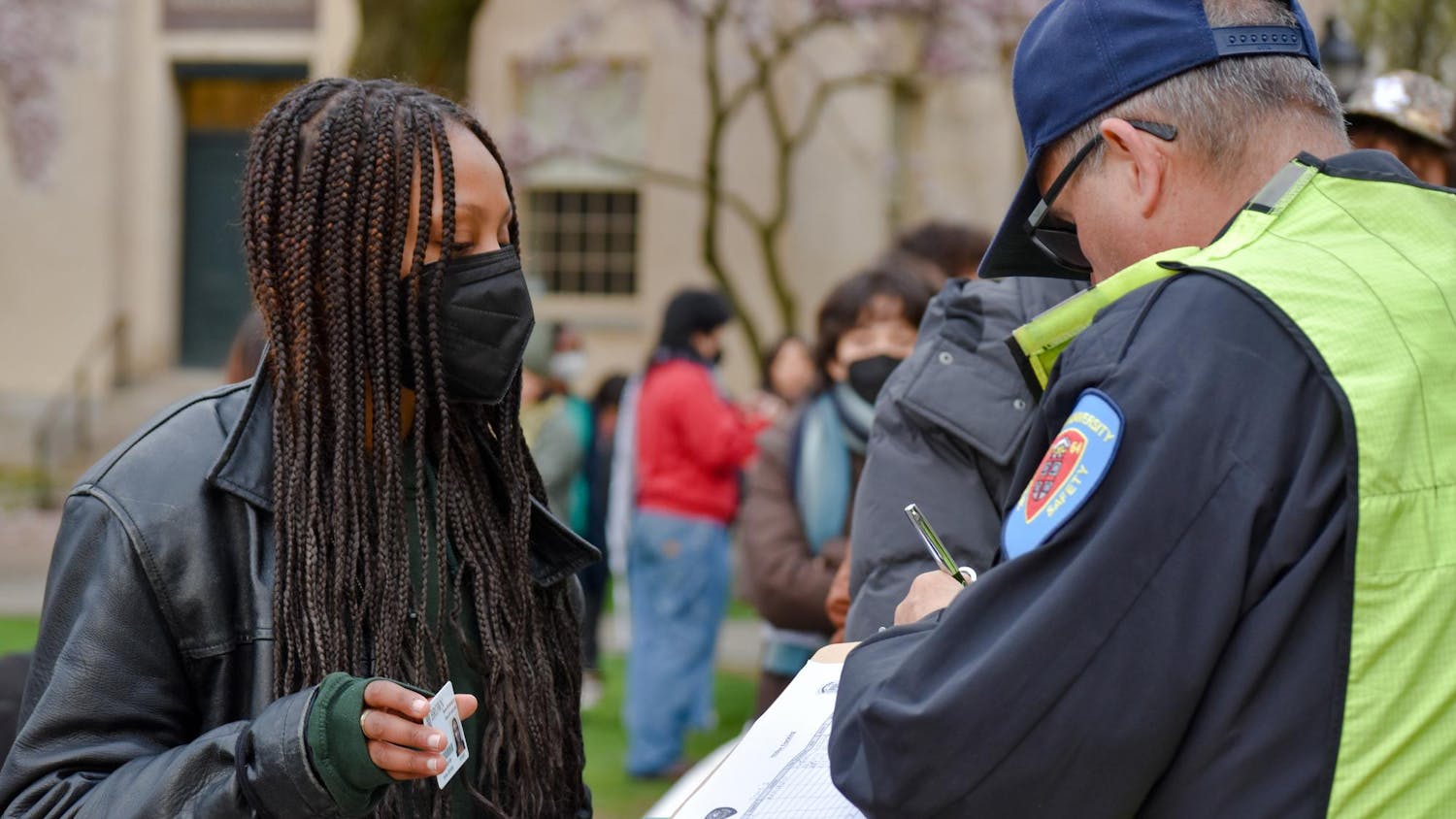Correction appended.
The outlook for Liberia, the war-torn West African nation, is promising, the country's vice president, Joseph Boakai, told a crowd of about 60 students and members of the Liberian diaspora Sunday afternoon.
Boakai spoke for about half an hour in Salomon 101 about the challenges of rebuilding his country and proposed a partnership between Brown and Liberia to that end.
Between 1989 and 2003, Liberian governments and rebel factions fought two civil wars. In a country of fewer than four million people, hundreds of thousands died and millions were displaced — both internally and externally — during the conflicts.
Despite the many obstacles, Boakai said it was his "firm belief that no country has a better chance of reconstructing its war-ravaged past," adding that United Nations Secretary General Ban Ki-moon expressed similar optimism about the country's recovery in a meeting Saturday.
Rhode Island has the largest population of Liberians in the United States, with about 12,000 residents. Boakai spoke of the central place of education in Liberia's plans for recovery. He said the administration of President Ellen Johnson-Sirleaf, who spoke at Brown last September, had placed a "premium on the development of human capital," and therefore dedicated "the largest proportion of our national budget to education."
"Our government inherited a broken educational system" focused on "graduation as opposed to learning," Boakai said. "Today, we have free and compulsory primary education."
The current administration has "raised the (monthly) salary of teachers from a bare 15 United States dollars" which was "not enough to buy two McDonald's quarter pounders with cheese, let alone be livable wages," he said. The government now pays teachers $80 a month. Professional and higher education are also vital to Liberia's recovery, Boakai said. "It is in this context that I wish to appeal to Brown," he said, proposing that the University partner with the Liberian government to provide Liberians with scholarships and research opportunities.
"I extend the invitation to President Simmons to come to Liberia soon in order to consolidate the partnership," he said.
Boakai said the government was also focused on bringing back foreign investment. Among its initiatives has been the Liberian Anti-Corruption Commission, created to thwart crooked political and business practices and thereby combat one of the greatest deterrents to foreign investment on the continent.
"But we also want to encourage Liberians themselves to be investors," Boakai said, adding, "All of us are on obligation to go back and rebuild."
Like South Africa and Rwanda before it, Liberia commissioned a Truth and Reconciliation report in order to move past its civil war.
But the efforts have stalled in recent months. "Some of the witnesses did not cooperate as they should have," Boakai said. And though "the commissioners were well-vetted," two refused this June to sign the report on atrocities in the country. The abstaining commissioners wanted an edited version of the report, but Boakai said many Liberians felt approving an edited report would constitute a disservice to the truth. He said Liberia would possibly hold a referendum to accept the report despite the commissioners' abstentions.
Boakai also noted that Liberia's is the first Truth and Reconciliation process to include active participation by the diaspora.
Samuel Kamara of Providence — one member of that diaspora — came to the United States 10 years ago to study, but the war prevented him from returning to Liberia. Before the lecture, Kamara said the outbreak of peace has led him to consider moving back home in the near future.
Kamara said it was difficult to evaluate Johnson-Sirleaf's administration from outside of Liberia, but added that all indications lead him to believe "she might be doing a pretty good job."
An article in Monday's paper ("Liberian VP offers hopeful view for troubled nation," Sept. 28) incorrectly noted that Liberia's Truth and Reconciliation report was established after similar commissions in South Africa and Rwanda. In fact, Rwanda has not established such a commission.




